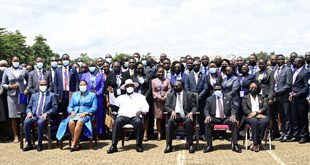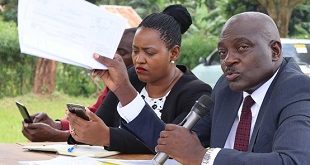Reversing Museveni’s fate
Until now, there has been concern that many Ugandans, including President Yoweri Museveni, do not have a record of basic information such as when they were born.
President Museveni will, for example, be making 73 years on Sept.15. But it is all guesswork. Museveni, in fact, does not know his birthday. Whenever he is asked about how he came to put his birthday at September 15, 1944, he always explains that he guesses his age based on his mother’s account. She reportedly told him that he was born three months after a massive cattle vaccination in western Uganda.
Museveni also bases on another story, reportedly narrated to him by another old woman who was a friend of his mother. According to the old woman, Museveni was born at the time when she was harvesting ‘Omugobe’ – cowpeas leaves. Both stories point to a season around September.
Museveni, at every birthday celebration, has to explain this. He did that last year.
“I may not tell you the exact date because I am not sure,” he said.
To Sarah Nahalamba, a professional social planner, not having such data could be a reason behind persistent challenges such as drug stock outs in government clinics, lack of school reading materials in schools, and even insecurity.
“The government doesn’t know the exact number of people they are planning for, whether they are urban or rural, their level of education among other issues,” says Nahalamba who is a Senior Planner at National Planning Authority.
She says the government often quotes and bases on outdated data of 10 to 20 years to sort new problems.
Under the law, NIRA is determined to ensure that future generations do not suffer the same fate.
NIRA is charged with creating, managing, maintaining and operating the National Identification Register, registering citizens of Uganda, registering births and deaths, and verifying and authenticating information relating to the registration and identification of persons among others.
It is under this law that NIRA is in massive drive to have every Ugandan registered and given a unique identification number.
NIRA currently has data of 17 million Ugandans who have picked their national IDs and 1.5 million whose cards are ready but have not been collected.
Once registration of all groups is finally completed, it is predicted that one’s national ID number will be used to open up access to most government services.
Without a birth registration number, children will not be able to access health, school enrollment, and other services – including some that are provided by the government.
Some commercial transactions, for example, including land, motor vehicle, and property transfers, now require one to have a Tax Identification Number (TIN). To get a TIN, one is most times asked to show their National ID number.
Nahalamba says, however, despite the relevance of registration exercises going on, some people still stay away because they wrongly suspect the government will use the collected data for political reasons or even taxation.
She says the government, therefore, needs to first educate people about how they are going to benefit.
The Registration of Persons Act, however, has another section that many Ugandans are possibly still overlooking. In Section 51 it states that persons who fail to take part in the registration can be punished with a fine or jail term.
The same applies to those who give false information and/or forge identifications. These will be fined Shs960, 000 or be imprisoned for up to three years.
But the experts say there is an even easier way for the government keeping track of its population – by registering them at birth.
Nahalamba says continuously registering births would help in keeping track of not just demographic trends but even economic trends.
International organisations in Uganda, including UNICEF, have been preaching the relevance of being registered. Unicef refers to it as a child’s passport to protection because knowing the age of a child is central to protecting them from child labour, being arrested and treated as adults in the justice system, forcible conscription in armed forces, child marriage, trafficking and sexual exploitation.
Birth registration is central to ensuring that children are counted and have access to basic services such as health, social security and education.
In Uganda, however, the only data which has been available for children is those delivered at the health facility and those who possess a birth certificate.
The National Population and Housing Census of 2014 which is the most recent data reveal that only 7.6% of Ugandans possess birth certificates. Among children of less than 18 years, it was found 31% had a birth certificate most of them being in urban areas. That could change if NIRA shifts focus to birth registration too.
****
editor@independent.co.ug
 The Independent Uganda: You get the Truth we Pay the Price
The Independent Uganda: You get the Truth we Pay the Price


